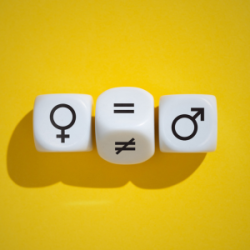
Some people mistakenly believe that Christianity is a misogynistic faith, but the reality could not be more different. One of the biggest problems that people face when they are examining Christianity and the Bible from a modern perspective is a lack of context, or in some cases, a refusal to recognize that context. This is especially true when it comes to dealing with the treatment of women.
Gender history clearly shows that women in nearly every culture have been subjected to greater disadvantages than most men. Still, some of the oldest stories in the Old Testament show that the Israelites had a surprisingly respectful view of women. For example, the story of creation in Genesis shows that God’s initial plan was for Adam and Eve to be equal partners (Genesis 1.27-28).
There are many strong and influential women in the Old Testament. Miriam, along with her brothers Moses and Aaron, was one of the deliverers of Israel from slavery in Egypt (Genesis 15.20-21). Rahab was instrumental in helping the Israelites conquer the Promised Land (Joshua 2.1-24). Deborah was one of the judges and leaders of the nation (Judges 3.1-10). Ruth demonstrated the highest level of loyalty and love (Ruth 1.16-18). Esther saved her people from genocide (Esther 4.1-17). The prophetess Huldah guided King Josiah when he read the newly discovered Book of the Law (2 Kings 22.1-20). Even the despised concubine, Hagar, was cared for by God (Genesis 16).
This respect for women continued in the Christian community. The Gospels are clear that Jesus’ disciples included women and that he was supported during his years of ministry by these women (Luke 8.1-3). The first person to meet the risen Jesus was a woman—Mary Magdalene—and she thus became the first to proclaim the resurrection (John 20.1-18). In light of first-century Jewish culture, which required men and women to be taught separately, the fact that Jesus had women following him was remarkable.
The importance of women in Christianity did not end after Christ’s death. In Paul’s epistles, he named many women whose leadership in the church he commended. Some were deacons (Phoebe), some were holding church meetings in their homes (Lydia and Priscilla), some had been imprisoned for their faith (Junias). Paul insisted that in the church “there is neither Jew nor Greek, slave nor free, male nor female, for you are all one in Christ Jesus” (Galatians 3.28).
Some scholars have pointed out that the Christian attitude of respect, compassion, and fidelity toward women and children was radically different than in Greek and Roman cultures. As Christianity became more widespread, women’s status generally improved.
Nevertheless, according to modern standards the message of the Gospel may seem restrictive since it calls for self-denial. For Christian men and women, personal rights and freedoms that many think normative today must give way to mutual submission (Ephesians 5.21), to fidelity in marriage (Hebrews 13.4), to love and modesty and respect (1 Peter 3.1-7). Christians do not agree, however, on the role of women in church leadership. Some allow women to be ordained and lead congregations; others do not. This is acceptable to some Christian women, but others find it hurtful and unsupported by the Bible’s commands.
3/23/2021 6:32:40 PM










